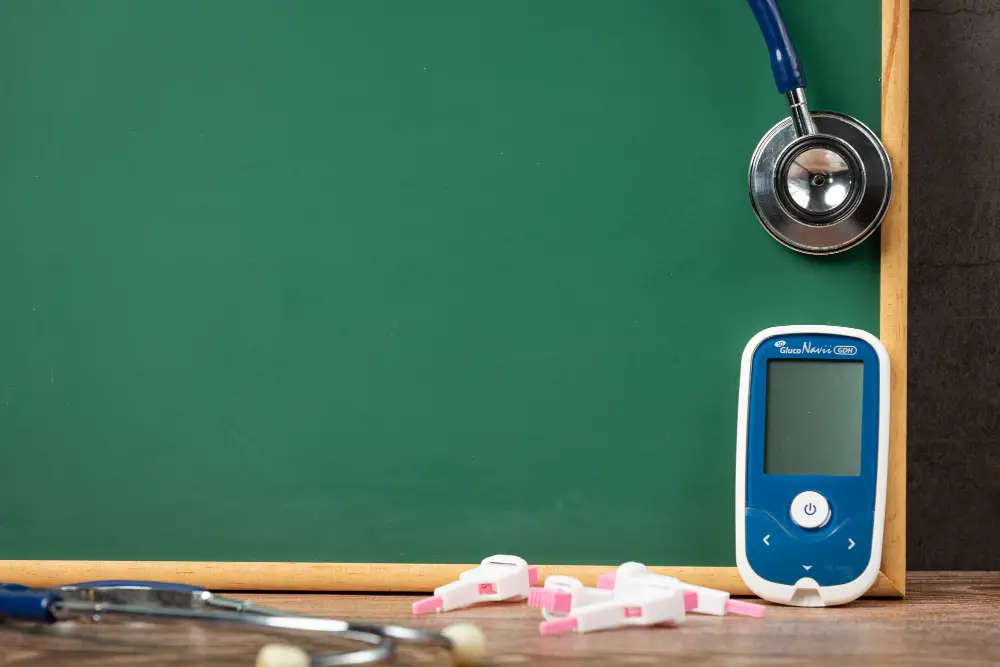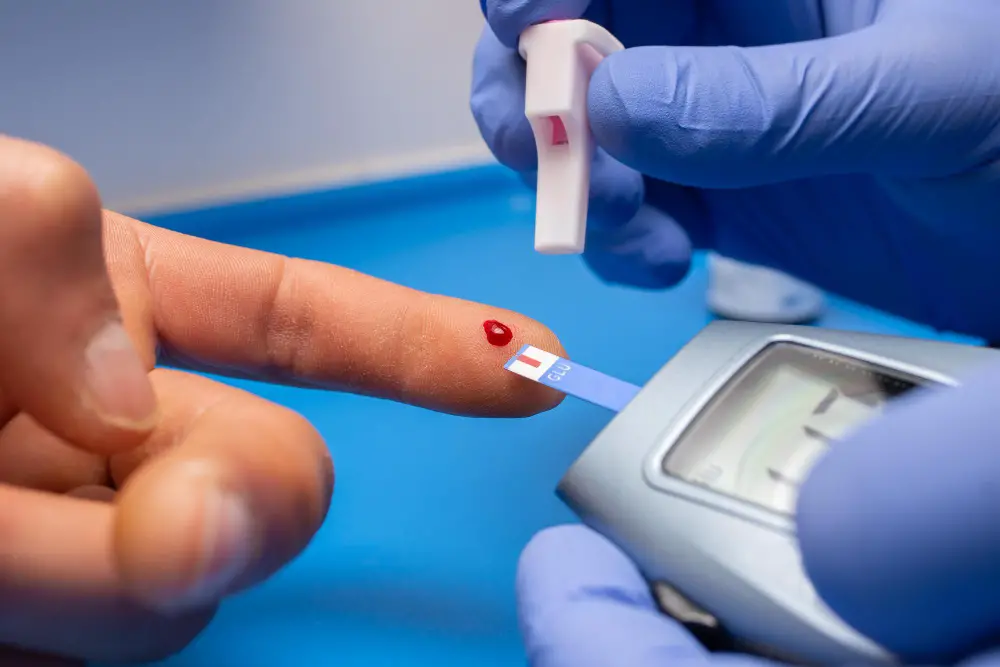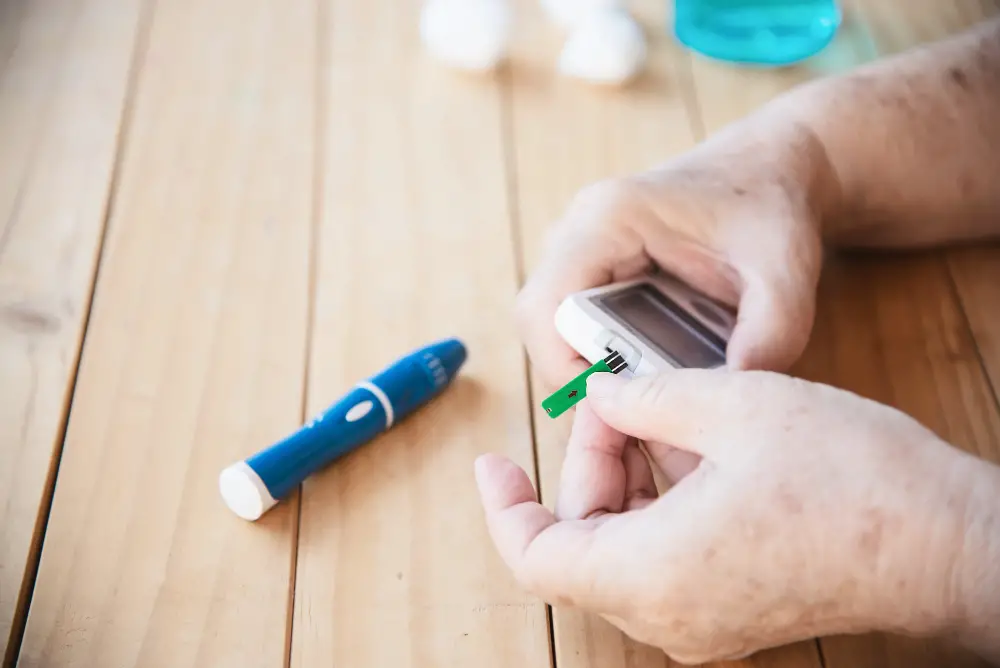
Which Foods to avoid with Atrial Fibrillation- Research Proven Facts
-
- Dr. Junaid Arshad
- November 4, 2021
- 1 comments
Table of Contents
Introduction
Food is a very important part of life. You deprive a person of the food he likes, and his life becomes colorless.
In this section, we are going to discuss which foods can contribute to the development of atrial fibrillation & which ones have no effect at all.
Before we jump to our topic let’s quickly review what AF is.
Atrial fibrillation is the most commonly occurring sustained arrhythmia of the heart.
It is a condition in which the two upper chambers of the heart which are called the atria, start beating fast and irregularly irregular.
The normal average heart rate of a healthy individual is 72 beats per minute but with Afib it can rise to as much as 200 beats per minute.
Now this much fast and irregular beat makes the contractility of the atria ineffective leading to the pooling of blood within the heart chambers.
This pooling of blood leads to clot formation which can dislodge from the heart and travel to the blood vessels of the brain and can cause a stroke.
Therefore, treating Afib and controlling heart rate and rhythm is essential to avoid its complications.
A patient of AF who has a controlled heart rate and normal rhythm and is on optimal treatment, certain foods can act as a potential triggers and provoke an episode of Afib, increasing the risk of its deadly complications.
However, a few foods may actually reduce the incidence of atrial fibrillation and other rhythm disorders of the heart.
Let’s discuss what those foods are and what the latest research has to say about them.
Alcohol
Amongst the food triggers of Afib, alcohol is at the top.
It can cause new onset Afib in a completely healthy person and is the most potent trigger.
It can also trigger an episode in a person known to have this disease but previously controlled with medication.
The current data suggest that binge drinking causes AF in 60% of people irrespective of underlying alcoholic cardiac disease.
These figures are supported by the fact that most of these cases occur following weekends or holidays during which the alcohol intake is greatly increased and is called the holiday heart syndrome.
According to a study, 1055 cases of AF were detected after a long term follow up and it was found that consumption of more than 3 drinks per day was associated with an increased risk (relative risk 1.34, 95% CI 1.01-1.78) [1]
Alcohol intake in moderate amount showed mixed results in different studies.
Few studies showed a positive relation but a few showed that moderate intake is not a risk factor for Afib, but the sample size in this case was relatively small [2]
However, a study done on 79,019 men and women having no disease at baseline and were exposed to moderate level alcohol, showed that there is an impact of even moderate alcohol consumption [3]
Caffeine
Caffeine has a stimulant effect on heart.
It increases heart rate, causes palpitations, & might precipitate arrhythmias like Afib.
A study conducted at the University of California in 2016 on 1388 participants concluded that consuming ≥1 cup of caffeinated products like coffee or tea did not put any additional risk of any arrhythmias. [4]
A metanalysis conducted on >100,000 participants yielded similar results. [5]
Keeping in view the results of these studies patients with AF can consume caffeinated products at a moderate level but still considering the theoretical risk it is recommended to avoid very high consumption in patients predisposed to AF.
Energy Drinks
Energy drinks (EDs) can affect heart when consumed in large amount.
This is mainly because of the stimulant substances present in them.
Although caffeine is one of the main stimulant they have but due to there widespread use its worth mentioning them under a separate heading.
Other stimulants include taurine, guarana and glucoronolatone.
Studies have shown increased incidence of Afib with excessive use of energy drinks.
The presence of other factors like sleep deprivation, stress and anxiety when present simultaneously, further increase the risk.
A typical scenario is of a student going through exams, staying awake late nights, also having stress of exam, uses Eds and gets Afib.
Fish & fish oil
Intake of fish & fish oil supplements have a wide range of health benefits specifically for the heart.
They decrease risk of both rhythm disorders and heart attacks.
Particularly those with a large amount of long-chain n-3 fatty acids have found to be more beneficial.
Research however has shown mixed results.
A study published in The American Journal of Cardiology in the year 2004, conducted on 44,720 female participants, failed to establish any association between new-onset Afib and intake of non-fried fish and omega-3 fatty acid. [6]
Another study published in Circulation in the year 2004 concluded that the incidence was lower in the elderly population who consumed tuna, broiled, or baked fish. However, dietary intake of fried fish gave no benefit. [7]
Chocolate and AF
Cocoa and cocoa-containing foods have health benefits especially for the heart when consumed in a moderate amount.
These health benefits are due to the antioxidant and anti-inflammatory properties of flavanols (a sub-group of polyphenols) which are present in large amounts in cocoa-containing foods.
Several studies have been done to find out what beneficial effects cocoa products like black chocolate have on arrhythmias like Afib & here is what we have got out of all of them.
In the year 2015, 18,819 US male physicians were recruited to study the effects of chocolate intake and new-onset AF. Results showed no association between the two. [8]
The Danish Diet, Cancer, & Health Study which included 55,502 candidates, done on the same subject of chocolate and Afib concluded that chocolate consumption in a moderate amount may be associated with a reduction in the risk of disease. [9]
Salt
A high sodium diet like salt has a direct relation with the development of Afib and it also worsens the risk factors like hypertension & ischemic heart disease.
A study conducted on 716 individuals with a follow-up duration of 19 years concluded that there is a positive association between high sodium intake and the development of new-onset Afib [10]
Another study published in May 2021 showed similar results.
257,545 women and 215,535 men were included in the study and after a follow-up duration of 10 years, 2221 women and 3751 men developed Afib. [11]
This raises the question that which food should be restricted to reduce sodium intake?
Here is the answer.
The processed food from a grocery store contributes to almost 70% of dietary sodium[12]
A study published in Circulation Journal in the year 2017 yielded these results.
So, avoiding those processed food can significanlty reduce dietary sodium.
Magnesium
In case of magnesium, not high but low levels enhance the risk of developing Afib.
The Framingham Heart Study supported this fact.
The study included 3530 individuals, those with low magnesium levels were 50% more likely to develop Afib. [13]
Food rich in magnesium includes black chocolate, legumes, nuts, and green leafy vegetables.
For more details on magnesium-rich food Click here.
Fats
Studies have revealed conflicting results regarding the effects of dietary fat on Afib.
A study conducted on 33,665 women of more than 45 years of age having no heart disease or Afib at baseline and were followed over a time span of 19.2 years showed no association with the intake of polyunsaturated fatty acids (PUFAs).
Whereas saturated fatty acids (SFAs) increased the incidence of Afib, and monounsaturated fatty acids (MUFAs) showed a protective effect decreasing the incidence of chronic Afib. [14]
Commonly used food rich in SFAs includes butter, margarine, processed meat, white chocolate, etc.
Foods rich in PUFAs include corn oil, soybean oil, walnuts, & fish like tuna, salmon, trout.
Olive oil, peanut oil, avocados, & nuts like almonds and cashews contain MUFAs
Sugar (Carbohydrates)
Carbohydrates or sugary food constitutes about 60% of our daily calories. So, we take carbs in a large amount every day.
A study including 13,385 participants concluded that low carbohydrate intake enhances the risk of developing Afib. [15]
This is true for complex carbohydrates only.
It is not recommended to use refined or processed carbs.
This seems contrary to the fact that people with diabetes mellitus are more prone to develop Afib as these people also have raised sugar levels and carbs do the same as well.
But the mechanisms responsible for the increased risk of Afib with diabetes are different and it’s not the direct effect of raised sugar levels.
What happens in diabetes is that there is an imbalance between blood sugar and insulin and this imbalance has some direct effect on the chambers of the heart.
Secondly, diabetes contributes to the development of left ventricular hypertrophy which again is a risk factor for Afib.
Diabetes also affects the conduction system of the heart thus increasing the chances of Afib.
Food that interacts with blood thinners
Every patient with Afib does not require blood thinners.
Only those with a high risk of clot formation require them.
CHADVASC score is a scoring system used for risk assessment.
Higher the score more is the risk of clot formation and complications like stroke.
Blood thinners like warfarin interact with certain foods that can increase or decrease the blood levels of warfarin & can have dreadful consequences.
It is essential to keep warfarin levels within a narrow range.
Levels above that range can cause significant & life-threatening bleed.
And levels below that range can enhance the risk of clot formation.
Cranberry Juice
- Cranberry juice should be avoided while taking warfarin as it can increase wrafarin effect and cause bleeding.
- Many case reports have shown these results.
Vitamin E
- It causes an increase in warfarin effect.
- Foods containing vitamin E include green leafy vegetables, nuts, vegetable oils and seeds like sunflower seeds
Vitamin K
- Food rich in vitamin K decrease the effect of warfarin.
- These include green leafy vegetables like spinach, broccoli & cabbage.
Final Verdict on what to eat if you have Afib
- Avoid Alcohol.
- Can consume caffeinated beverages in moderate amount.
- Avoid excess intake of energy drinks especailly when other stimulants like anxiety or sleep deprivation is present.
- Make fish and chocolate a part of diet but don’t consider it some definitive therapy which is superior to medication.
- Avoid high sodium diet and don’t add extra salt to your meal.
- Take a handful of nuts everyday that can give you magnesium and MUFAs (monounsaturated fatty acids) both of which can benefit your Afib.
- Do not omit saturated fats completely but take them in low quantity.
- Make complex carbs a part of your life and try to remain as far as possible from refined carbs.
- Control blood sugar with regular monitoring, weight loss, diet and lifestyle modification, along with strict compliance to medication & regular follow-ups.
- When on warfarin avoid foods rich in vitamin k.
- Or use an alternative blood thinner with no food interactions after consulting your doctor.





1 comment